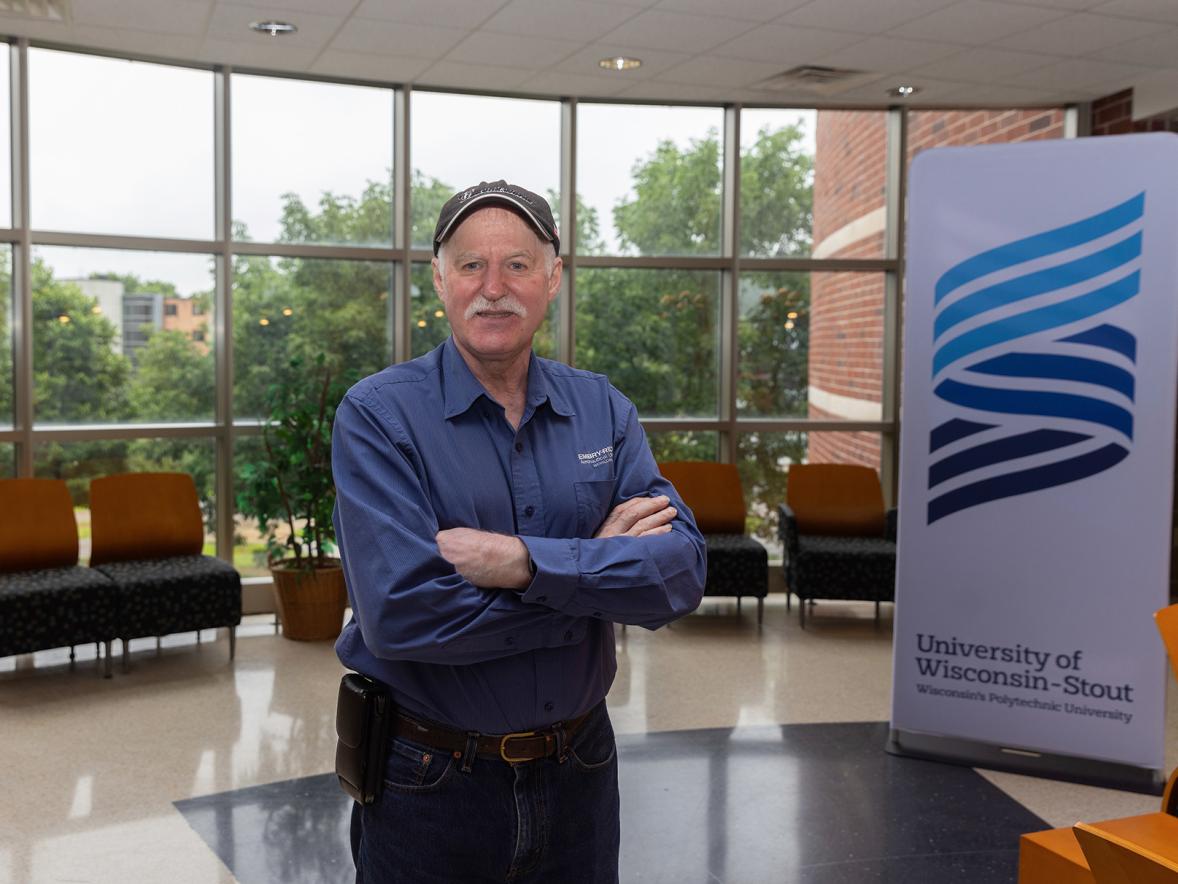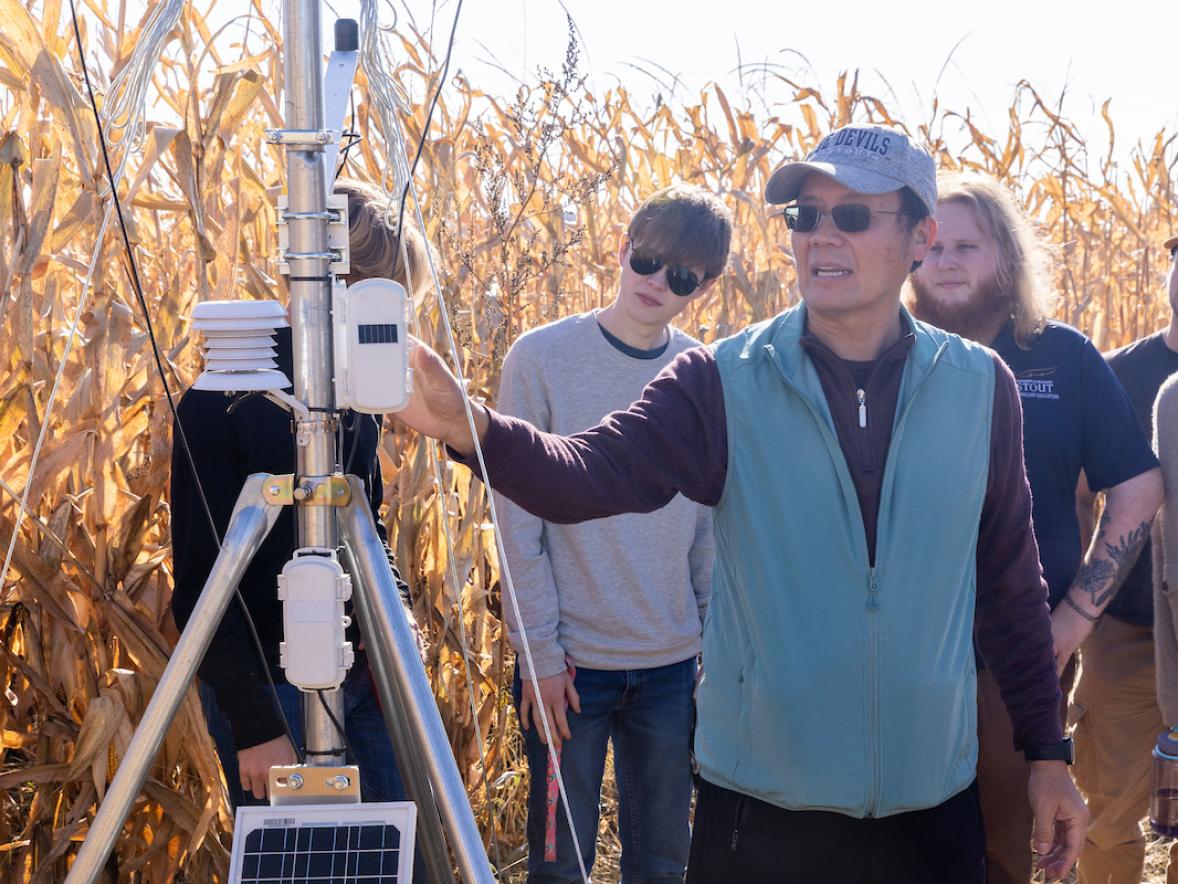Christine Leonard had a come to cheeses moment while attending an Honors College class at the University of Wisconsin-Stout on the geography of food.
In that class, the 2016 alumna, who grew up on a family-owned dairy farm near Waconia, Minn., really started to think about food and where it came from. “It made me think how we can support local farmers and what agriculture looks like for people who have not grown up in it,” said Leonard. “That inspired me to tell the story of agriculture, big and little farms, impacting the world.”
Leonard earned her degree in food science and technology with an emphasis in communication. In 2020, she started her own business called the the Grater Good, creating cheese and charcuterie boards with locally sourced ingredients.
At first, Leonard didn’t even want to think about attending UW-Stout after she graduated from Waconia High School because her brother, David, a 2012 engineering technology alumnus went there.
That is until she visited the campus.
“I toured it and I fell in love with the campus and the community,” said Leonard, a winner of UW-Stout’s Samuel E. Wood Medallion, which recognizes student leaders. “I just loved the feel of it. I loved Stout.”
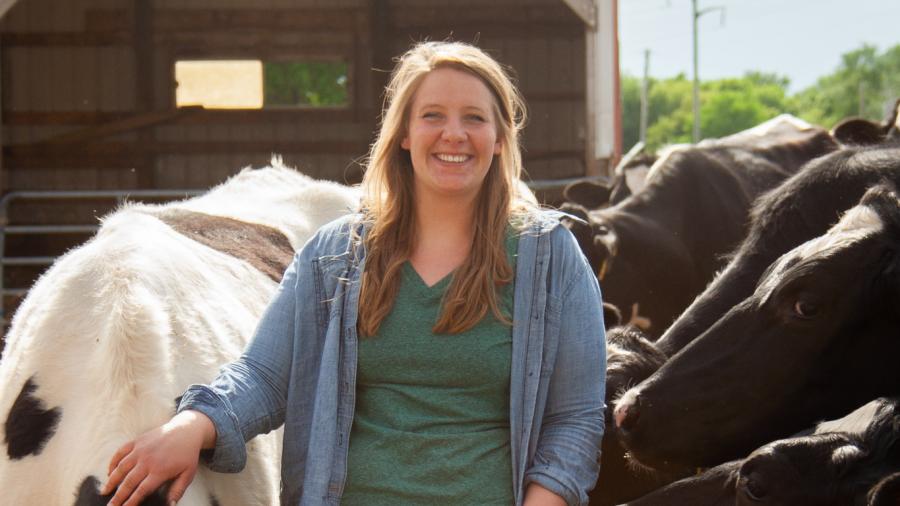
She also was chosen as a Stout Scholar, receiving $20,000 from the Stout University Foundation over her four years. With an affordable education and lower living costs than other universities she visited, Leonard knew UW-Stout was the place for her.
She played rugby and continued to learn about food and the science behind it. “That was the biggest advantage of not going to a traditional agriculture college,” Leonard said. “I got to see the different viewpoints of conventional farming.”
Working at University Dining while at UW-Stout also helped teach Leonard about food safety. “From the classroom to even my on-campus position, everyone encouraged excellence,” Leonard said.
Lisa Miller, University Dining food service manager, said Leonard often talked about wanting to return to the family farm when she worked at North Point dining. Leonard was a great motivator and mentor to others.
“She is like sunshine when she walks into a room,” Miller said. “Christine is a very hard worker with an incredible work ethic. She is very passionate about everything she does and takes pride in everything she does. She is organized and pays close attention to detail.”
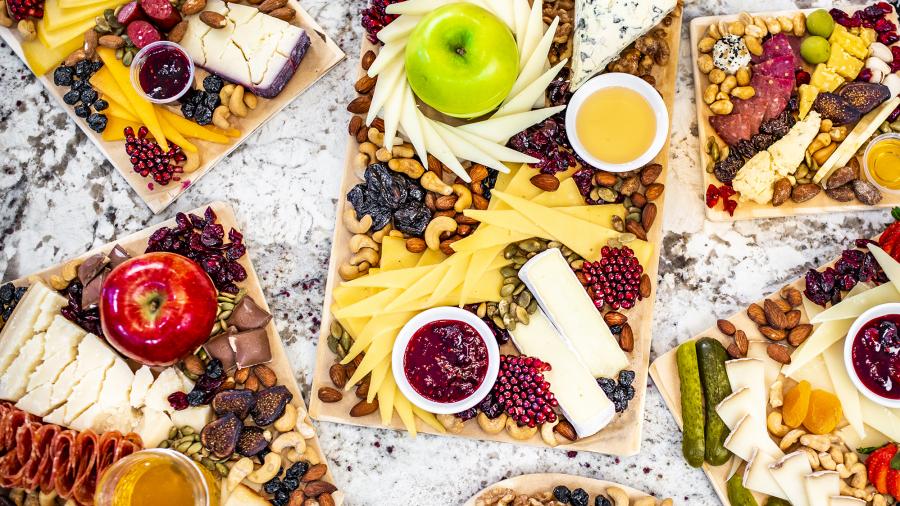
After working at North Creek Community Farm in Prairie Farm, an organic vegetable farm, and at Redhead Creamery in Brooten, Minn., making artisan cheese, Leonard finally followed her dream and began farming full time with her parents in January 2018.
“I had to beg them for two years,” Leonard said, noting she helps milk twice a day as well as helps run the farm. “They kept telling me no because they knew the commitment farming is. I want to take over the dairy farm. I love cows. They are cool to work with and they all have got their own personalities. Getting to work with cows is worth it to me. I also get to be my own boss.”
The Leonard Family Farm celebrates its 150 anniversary this year, and she is the sixth generation returning to the farm. “It’s something in your blood,” Leonard said. “I grew up caring for the animals and caring for the land. There is just something so special about taking care of land that has taken care of generations before me.”
With the help of family, Leonard added a 150-square-foot “cheese shack” on the farm where she started creating the artisan cheese platters in 2020 using local cheeses and meats to create a board of snacks for customers. All items come from a five-state area with an emphasis on quality. Some other locally produced items on the platters include honey, apples when available, or dried apples in the off season.
Her sister-in-law, Ashley, a 2011 UW-Stout hotel, restaurant and tourism management graduate, makes the jams that go with the cheese board offerings.
Boards available at the farm include the Taste for Two, the Nibble for Five, the Munch for 10, the Bite for 15, and the Heart for Two, which comes on a heart-shaped board. She also added individual boards during 2020.
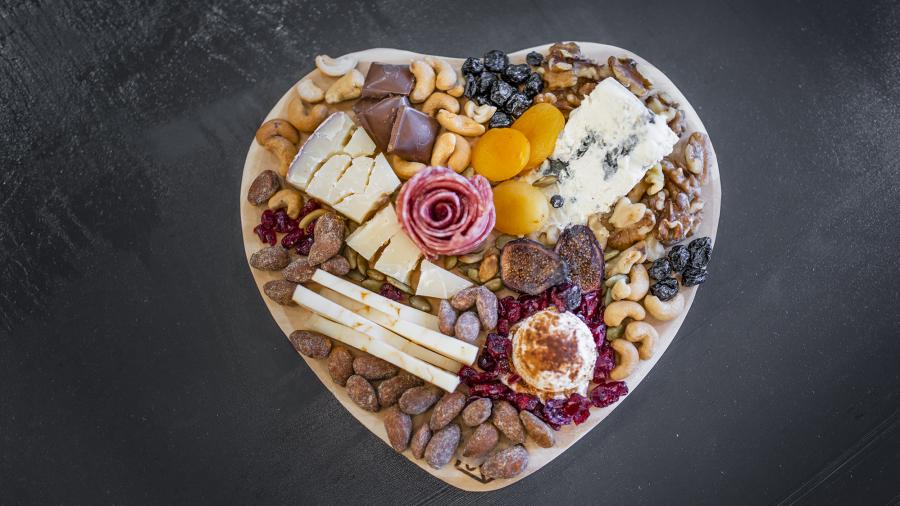
Originally, her brother, David, made all the cheese boards by hand, but as the business has grown, Leonard has started using sustainably-sourced palm leaf boards.
“My favorite part is being able to tell the story of the cheese,” Leonard said. “With artisan cheeses you can break it down to the time of year, what the animals were fed, and which cheesemaker made it. I think that’s what makes it special. Each board comes with a detailed information sheet and lists the pairings they should try. I want the eating to be an experience. I want it to be something they can sit and bond over. Our boards are hand-crafted, perfectly paired and beautifully done.”
Xanthi Gerasimo, Honors College adviser and women’s rugby coach, said Leonard is a hard worker, eager to learn and enjoyable to be around.
“It did not shock me when Christine chose to return to her family farm,” Gerasimo said. “She loves the land, loves her cows and feels a connection to producing food. I love how she has taken her food science background and used it to innovate new ways for her family farm to make money. She took knowledge from her internship at a cheese factory and her coursework and combined that with her passion for ethical local food and created her amazing business.”
Leonard’s favorite cheese is Lucky Linda Clothbound Cheddar from the Redhead Creamery. It is a smooth, savory cheese. “It is a full sensory experience,” Leonard said. “It is beautiful and is creamy on the palate.”
While at UW-Stout, Leonard participated in a wine and food pairings class. It taught her the subtle taste nuances of pairing cheeses with different foods.
In addition to the boards, Leonard offers on-the-farm or virtual classes teaching participants about different cheeses. Leonard loved the applied learning that UW-Stout offers and carries that into her classes, explaining how all cheese is made from milk, cultures, rennet and salt. “I want people to go into a store and have the whole story behind the cheese they see,” she noted.
Moving into the future, Leonard plans to add a space to offer indoor classes on the farm and by 2030 a creamery that would allow her to milk 15 cows and produce artisan cheeses. She hopes the family farm continues into the next generation and that those sweet dreams are made of cheese.





